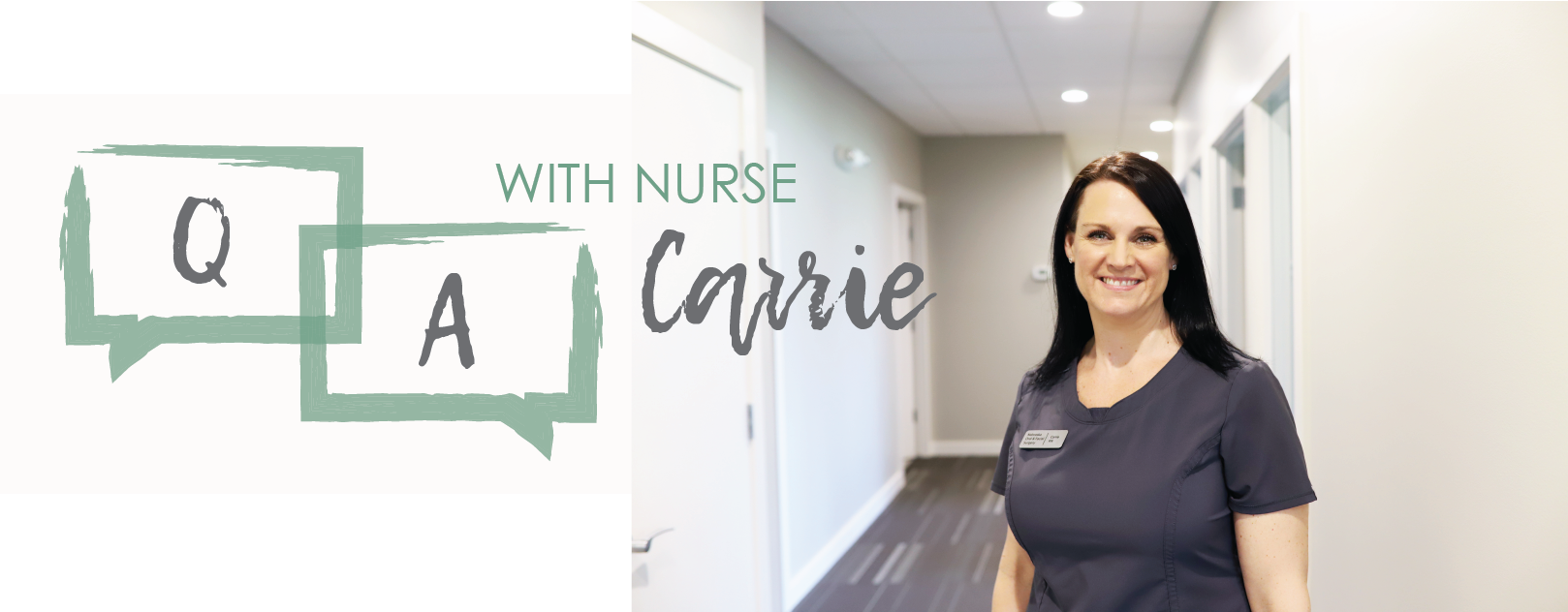
Topic: Sedation
Carrie is our Clinical Operations Manager and a Registered Nurse here at Nebraska Oral & Facial Surgery. We sat down with Carrie and asked her the top questions patients ask her. Today, let’s talk sedation. Sedation is the process of administering a sedative drug that produces a state of calm or sleep. Let’s hear from Carrie on why it’s a highly recommended practice for a tooth extraction or dental implant procedure.
Why do we recommend sedation?
* Relaxing and more comfortable to the patient
* Reduces anxiety
* Decreased level of consciousness
* Quick and painless procedure for the patient
* Perceived shorter procedure time
Each patient is carefully screened according to their specific health conditions:
* Allergies
* Heart issues
* Age
* Neuromuscular disorders
* Medication interactions
* Family history
Why do we insist on nothing to eat or drink for 8 hours prior to procedure with sedation?
The sedation medications produce a decreased gag reflex which reduces the ability to keep contents in the stomach. Stomach contents that move into the throat may be inhaled (aspirated) and could be fatal. We request no food or drink, gum or even mints before your appointment for these reasons.
How do we deliver sedation?
After the patient is placed on monitors (EKG, blood pressure, oxygen via nasal cannula, pulse oximetry), a trained Registered Nurse (RN), or the physician, starts an IV in the patient’s arm. The sedation medications are specifically titrated by the surgeon for each patient in relation to their health conditions and procedure being performed. The patient typically drifts to sleep within two minutes of receiving medications and then we begin the procedure. The medications are delivered and monitored throughout the procedure by the doctor.
Post-Operative Concerns
After the procedure the patient is taken to a recovery area in which an RN will monitor the patient as they wake up from sedation.
There is often memory loss for a brief time after the procedure due to the medications used for sedation. Even though the patient may seem wide awake, the memory cells will not be engaged. It is extremely important for the patient to refrain from driving, working, or doing anything very important for 24 hours after sedation.
This sedation process results in a quick and smooth surgery process for the doctors and a speedy recovery for you!
Nebraska Oral & Facial Surgery is the premier oral and maxillofacial surgery center in Nebraska with offices in Lincoln & Columbus. David Rallis, DDS, MD; David Cleverly, DDS; Kevin Rieck, DDS, MD; and Matthew Davis, DDS, MD have been trained in the full scope of oral and maxillofacial surgery. Their expertise ranges from wisdom teeth removal to dental implant placement to facial reconstruction.
